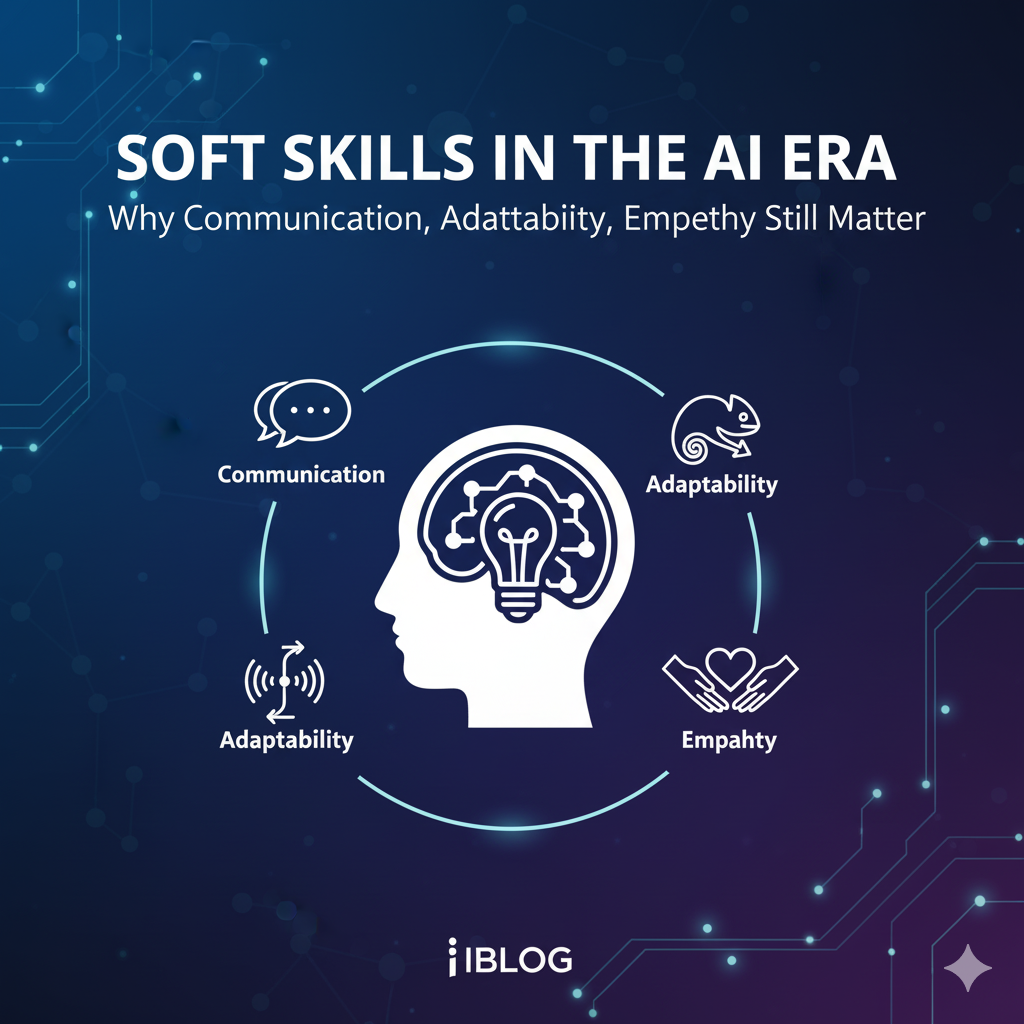
Soft Skills in the AI Era: Why Communication, Adaptability, Empathy Still Matter
In 2025, technical skills like AI, machine learning, or prompt-engineering are essential — but they’re no longer enough. As automation, AI, and generative tools handle more routine, structured tasks, soft skills are becoming what differentiates the most successful professionals. LinkedIn’s data, echoes from Business Insider and reports from Forbes, indicate that communication, adaptability, empathy, resilience, and collaboration are rising in value. In short: humanity still wins.
📈 What the Data Shows-
LinkedIn’s Most In-Demand Skills for 2024 report found that communication is ranked #1 among all skills globally, including regions across APAC. In that same report, adaptability was called “skill of the moment” for its large year-over-year demand increase. LinkedIn
-
Another LinkedIn survey revealed that over 90% of global executives believe soft/human skills are more important than ever for their organizations, even as AI becomes more common. LinkedIn+1
-
In India, ~94% of companies are focusing on refining employees’ skills to thrive in the AI era, including soft skills like problem solving, communication, and adaptability. mint
-
LinkedIn data also shows that professionals who combine soft skills with hard/tech skills tend to get promoted faster—those with both get 8% faster promotions compared to those with only technical skills. Skills like communication, teamwork, problem solving hold strong influence. LinkedIn
-
AI can’t replicate empathy, nuance, human judgment
Machines handle pattern recognition or predictions, but the ability to understand others, manage difficult conversations, resolve conflicts, and motivate teams remains human territory. -
Communication across hybrid & remote work
With remote work, dispersed teams, AI tools for collaboration — communicating clearly, with empathy and clarity, becomes essential to avoid misunderstandings and maintain team morale. -
Adaptability amid change
AI tools, business environments, regulations change rapidly. Being able to learn new tools, shift roles, pick up new workflows, and adjust mindset is now a survival skill. -
Empathy & emotional intelligence
As customer experience becomes more important, employee well-being, and stakeholder relationships matter. Leaders who show empathy, build trust, and support human connections stand out. -
Soft skills enhance trust in AI implementation
For AI systems to be adopted, people must trust them. Empathetic leadership, transparent communication, ethical design + oversight are needed to ensure that automation doesn’t alienate human contributors.
In the AI-driven era, developing the right soft skills is as important as mastering technical ones. Let’s explore the essential human skills every professional should focus on — and how to build them effectively.
Communication remains the most critical skill in the modern workplace. It ensures clarity, reduces misunderstandings, and inspires teams to work efficiently — especially when explaining complex AI-driven decisions. To strengthen communication skills, professionals should practice public speaking, writing, and active listening, as well as engage in storytelling workshops or debates to refine how they express ideas clearly and persuasively.
Next comes Adaptability and Learning Agility, the ability to pivot quickly as tools evolve, roles change, or automation redefines processes. In the fast-moving AI landscape, adaptability helps professionals stay relevant and confident. This can be developed through continuous learning, cross-skilling, and participating in challenge-based projects that encourage flexible thinking and experimentation.
Empathy and Emotional Intelligence are vital for leading teams, mentoring peers, and building trust in both technological and human environments. As organizations balance automation with human interaction, empathy bridges the gap between data and people. To cultivate empathy, practice perspective-taking, engage in mentorship or coaching, and show genuine concern in your daily interactions with colleagues and clients.
Problem-Solving and Critical Thinking are the backbone of innovation. These skills allow professionals to evaluate AI-generated insights, identify limitations, and design creative solutions that machines alone can’t deliver. Strengthening these abilities involves working on real-world case studies, conducting root cause analyses, and taking on ambiguous challenges that push your reasoning skills further.
With rapid changes brought by AI, having a Resilience and Growth Mindset is essential. The transition can be stressful, but resilience helps individuals recover quickly from setbacks and learn from failures. To build this mindset, practice mindfulness, create feedback loops, and view mistakes as opportunities for improvement rather than barriers to success.
Finally, Collaboration and Teamwork are more important than ever in a world where AI tools extend our capabilities but can’t replace the nuance of human cooperation. Effective teamwork requires empathy, respect, and coordination across diverse disciplines. You can develop this by joining team-based projects, engaging in peer learning, and participating in cross-functional collaborations that help you understand different perspectives.
🌐 Real-World Examples and Case Studies
-
Companies adopting AI for content generation or data processing often find that communication skill gaps (misinterpretation of AI output, misaligned expectations) slow down adoption more than technical limitations.
-
In a linked study, employees with soft skills plus technical aptitude were 13% more likely to be promoted in tech-adjacent roles vs those with just tech skills. (LinkedIn APAC / India data) The Times of India+1
-
During the shift to remote work, many firms reported that lack of empathy and communication from leadership caused disengagement; organizations that trained leaders in soft skills saw improvements in retention and productivity.
-
Seek feedback frequently — ask peers or mentors how you communicate, how you handle change, how empathetic you appear. Use instruments like 360 feedback.
-
Roleplay & scenario training — simulations of conflict resolution, customer escalation, cross-team collaboration.
-
Storytelling & reflection — write or verbalize experiences where you succeeded or failed due to your soft skills; reflect on what you learned.
-
Combine soft + tech tasks — volunteer or initiate projects that require you to lead, negotiate, or collaborate while using AI tools; this builds hybrid strength.
-
Mindful communication — active listening, avoiding jargon, empathy in written & verbal interactions; tailor your messages for different audiences.
In the AI era, soft skills aren't “nice extras” — they are essential. As technical tools change rapidly, it's how people communicate, adapt, empathize, and solve that build trust, innovation, and lasting success. Businesses and professionals who invest equally in soft skills and technical skills are the ones scaling faster, leading better, and creating impact.
If you're looking to grow both sides of your skillset, ChronoLearn is here to help you master communication, adaptability, empathy—and the technical foundation that powers AI.
Tags :
- Soft Skills
- Communication Skills
- Adaptability
- Emotional Intelligence
- Empathy at Work
- Human Skills in AI
- AI and Soft Skills
- Future of Work
- Leadership Skills
- Career Growth 2025
- AI Era Skills
- Professional Development
- Workplace Communication
- Upskilling
- AI and Human Collaboration
- why soft skills matter in the AI era
- top human skills needed in 2025
- how to develop communication skills for AI jobs
- importance of empathy and adaptability in modern workplaces
- emotional intelligence in leadership and AI environments
- skills every professional needs to thrive in the AI age
- how to build soft skills for future careers
- communication and empathy in AI-driven organizations
- future of work and soft skills for career success
- balancing human skills and AI automation
- how to combine technical and soft skills for growth
- most in-demand soft skills for 2025
- learning agility and adaptability in the AI workforce






